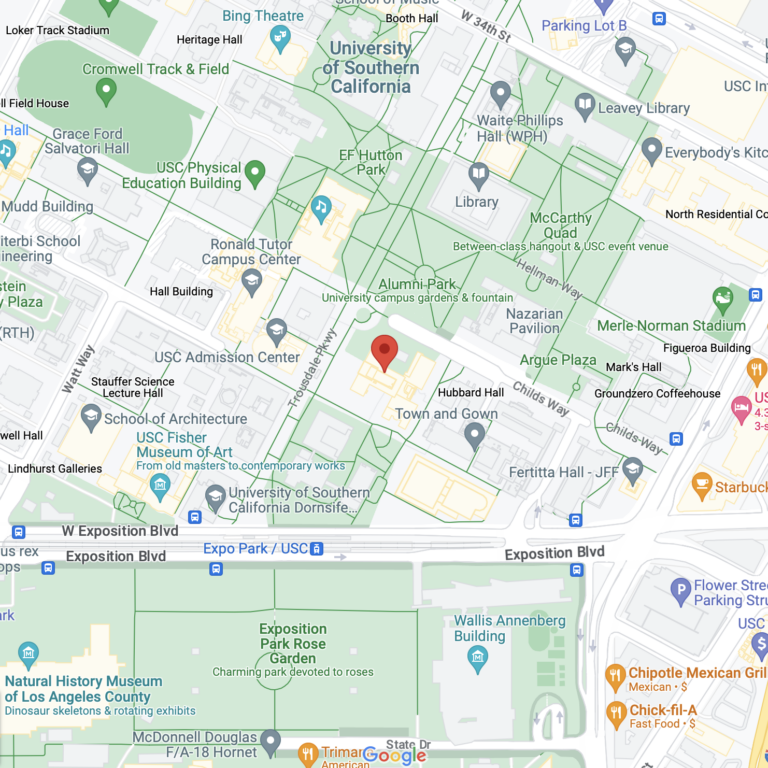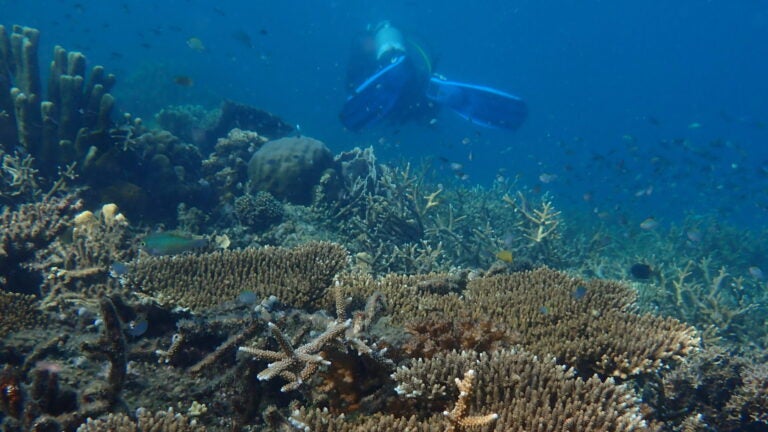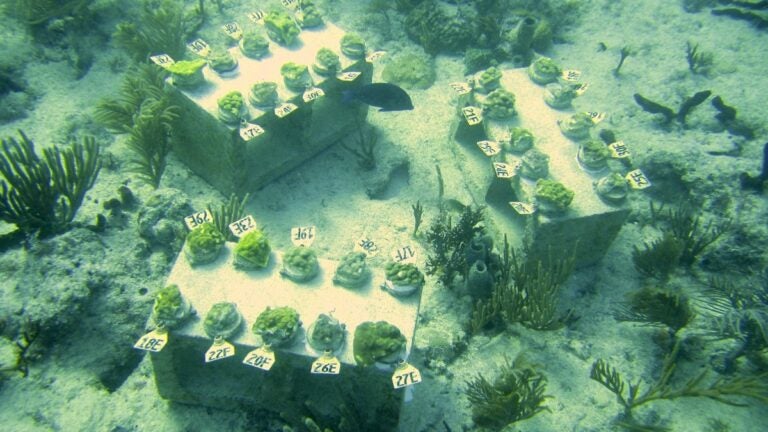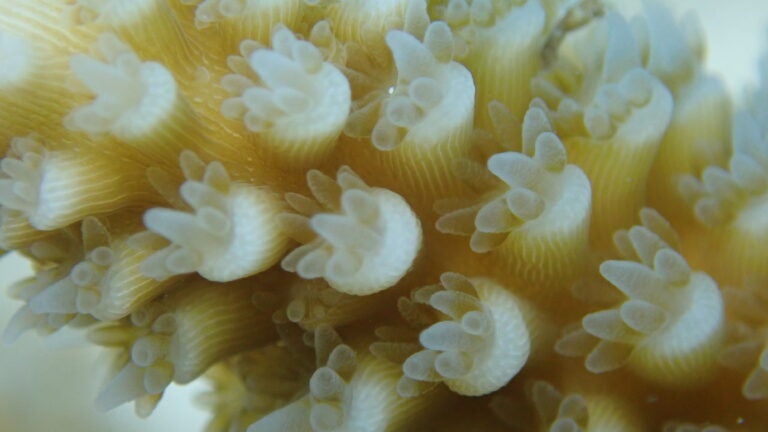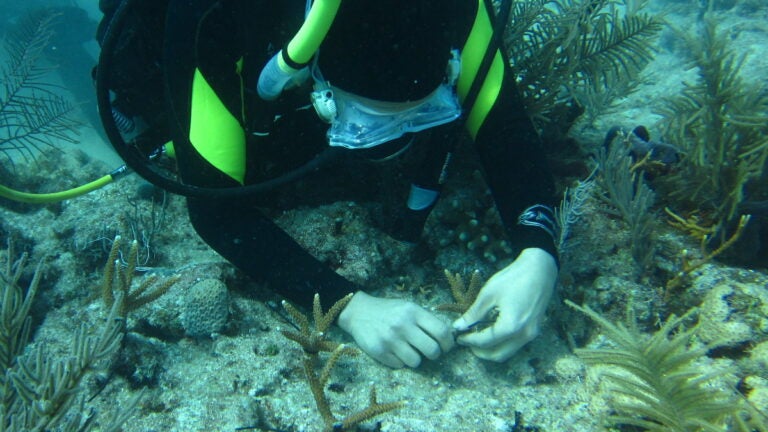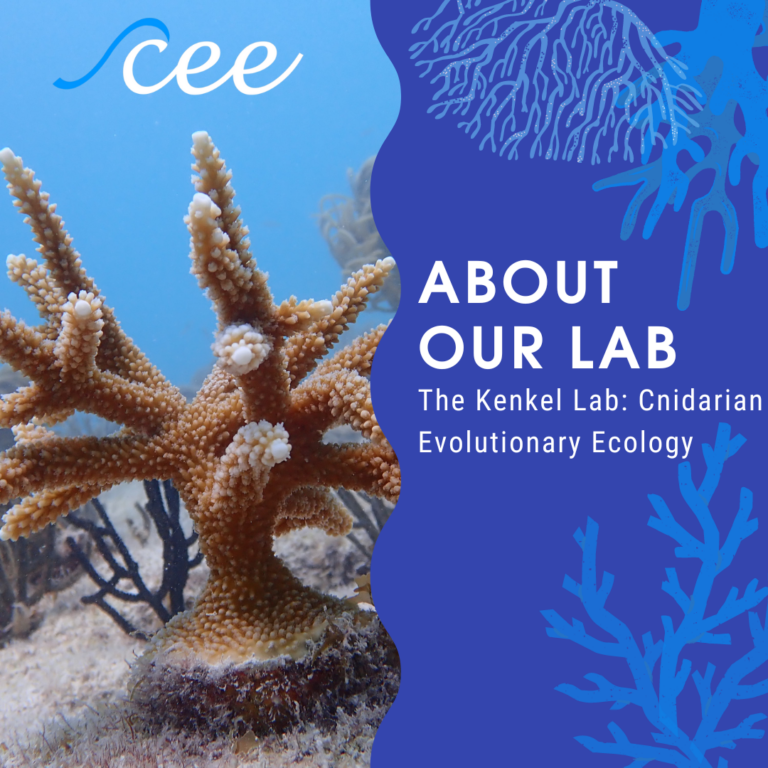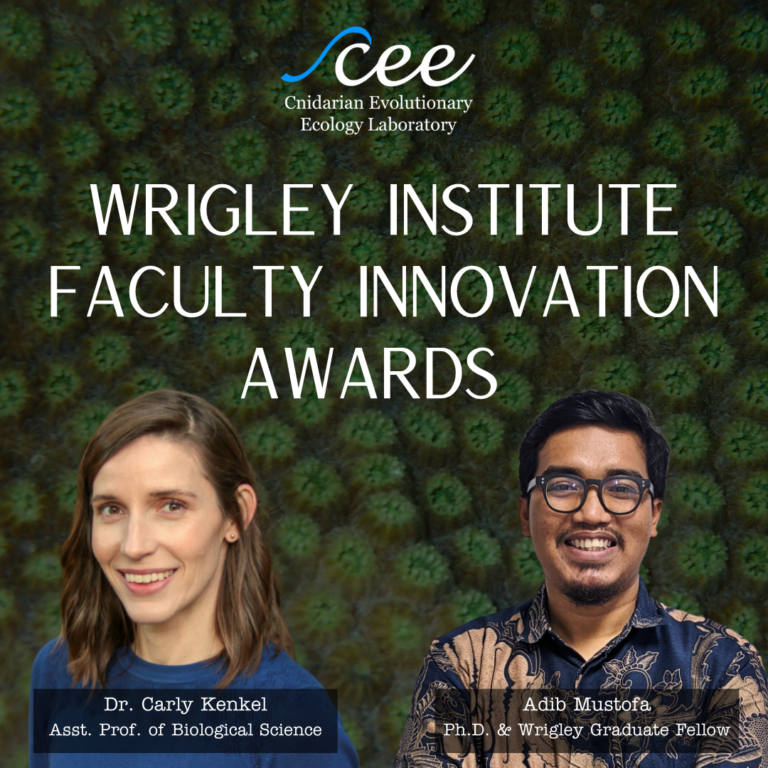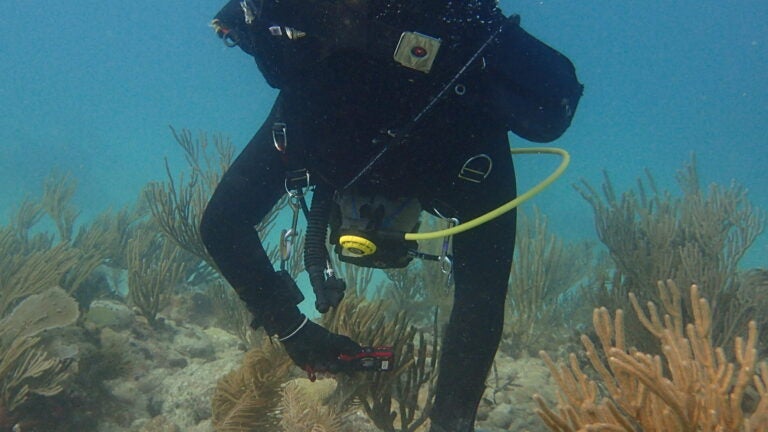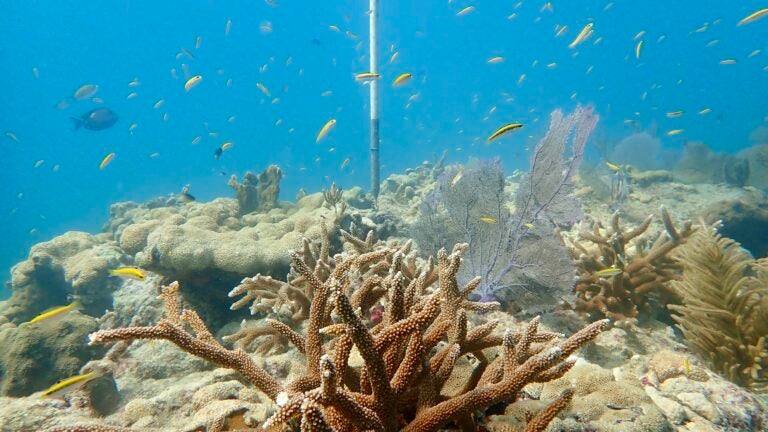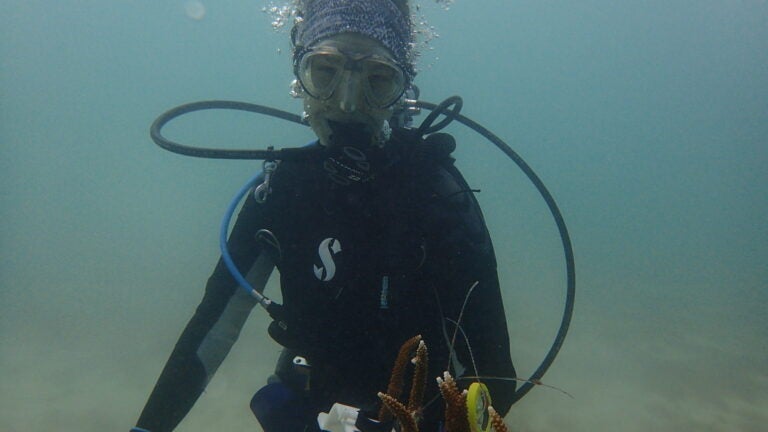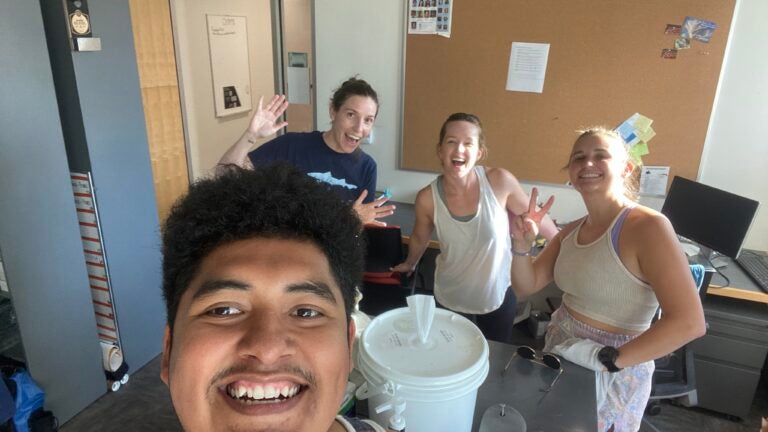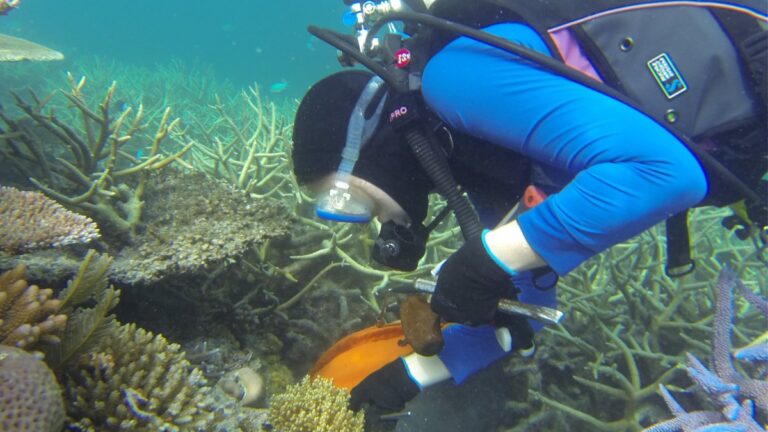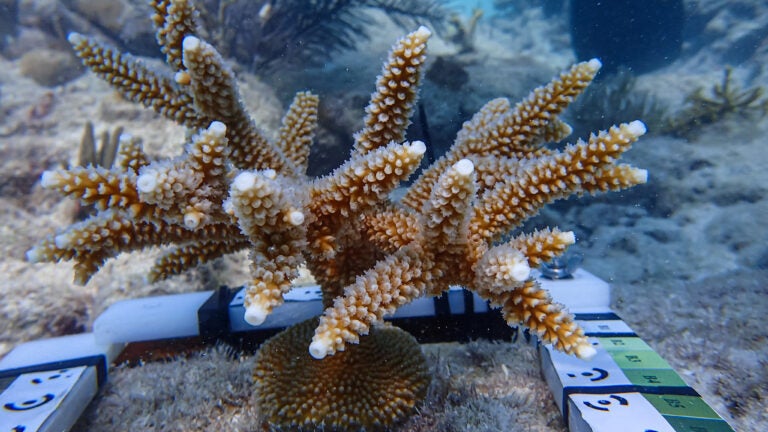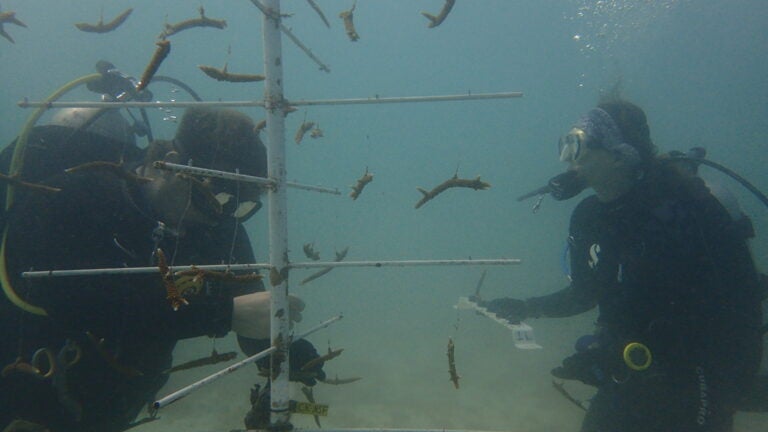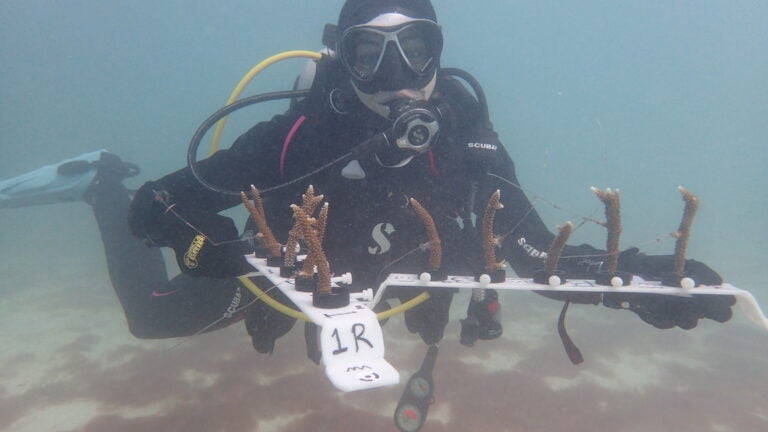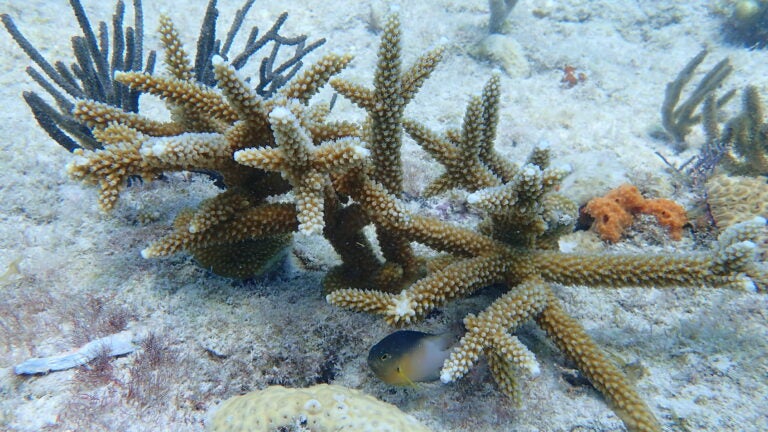About Our Lab
The CEE Lab investigates the ways that an organism’s physical traits – also known as its phenotype – are produced and modified by genetic and environmental effects. We study how these ecological interactions mold and are molded by the evolutionary tracks of populations and species. Our Lab also values translational ecology: turning scientific findings into tools for conservation management.
We use a variety of methods to explore these topics, ranging from field experiments to genomic analyses, and more. Find additional information about recent work on the ‘Research’ and ‘Publications’ pages.
Follow us on Instagram @CEELabUSC or Twitter @DrCarlsHorn for lab news in real-time!
In this lab, we believe…

The CEE Lab occupies the traditional and unceded lands of the Chumash, Gabrieleno/Tongva and Kizh peoples, whereas our Florida Keys research occurs on the ancestral homelands of the Calusa, Tequesta, and Seminole peoples. We acknowledge and pay our respects to their Elders, past and present.
Ongoing Research Projects
Local Adaptation
Marine environments can vary widely, even over small areas. We aim to understand how cnidarians specialize to local habitats, despite their wide dispersal potential. We are especially interested in ecosystems where spatial environmental changes mimic predicted patterns of global change. These include subtidal temperature gradients in the Florida Keys, CO2 seeps in Papua New Guinea, and the volatile environment of California’s rocky intertidal.
Symbiosis
Cooperative interactions between species have played a fundamental role in the evolution of life, but there’s still much to learn about how these relationships develop and persist, especially in the face of rapid environmental change. We’re using field and lab-based studies to study algal, bacterial, and even fungal partners of corals and anemones.
Translational Ecology
The current rate of climate change is threatening ecosystems worldwide. In addition to the loss of critical services, we also face losing unique aspects of their biology, which fuel scientific discovery. A significant part of our work focuses on supporting ecosystem management with science. We have helped form guides for coral reef restoration, & developed methods for investigating the dynamics of harmful algal blooms.
The CEE Lab’s latest NSF-funded project:
The Role of Adaptive Plasticity in Coral Response to Climate Change
Plasticity is the ability of an organism’s genes to produce a range of physical traits in answer to environmental changes. Climate change threatens many populations because existing traits may be poorly suited to new and rapidly changing conditions. Whether or not populations persist will depend on their ability to adapt to new and evolving habitats. This project aims to understand the role plasticity plays in adaptation to natural environments from the underlying genetic functions that produce plasticity to how coral plasticity impacts reef ecosystems. Watch the video below to find out more!
From the Field
Check out some of our amazing photos from the lab and the field! Our research takes place in and out of the water. From SCUBA diving to caring for corals in our aquarium room; measuring water quality, to microbiology and genome analyses – we use whatever tools are needed to answer the question!.
Most of our field work takes place in the Florida Keys, but we’ve recently begun working in Indonesia as well. These places offer breathtakingly beautiful ecosystems that we get to share!
For more coral content check out our Instagram @CEElabUSC!
Contact Us
Address:
AHF 231
3616 Trousdale Pkwy
Los Angeles, CA 90089
Principal Investigator:
Carly Kenkel
Email: ckenkel@usc.edu
Website design by Savannah Masters (masterss@usc.edu)
